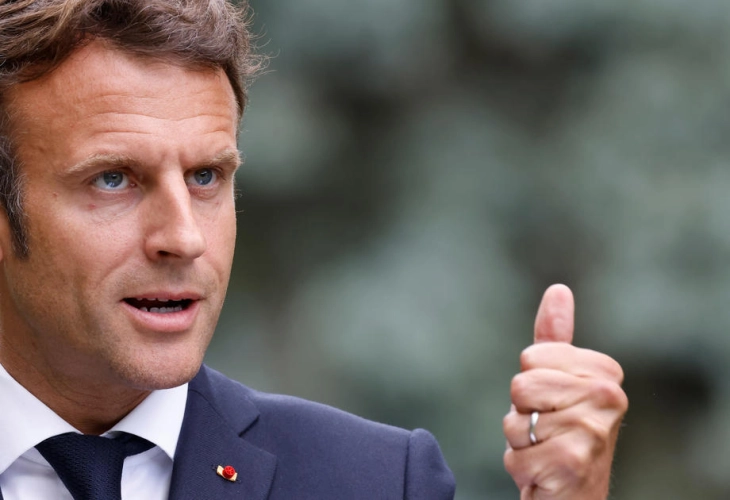Serbia, Kosovo leaders meet at EU-backed talks as protests continue
- The presidents of Kosovo and Serbia held talks on measures to lower tensions between the Balkan neighbours on Thursday.
- Post By Silvana Kocovska
- 13:41, 2 June, 2023

Bulboaca, Moldova, 2 June 2023 (dpa/MIA) - The presidents of Kosovo and Serbia held talks on measures to lower tensions between the Balkan neighbours on Thursday.
Serbian President Aleksandar Vučić and Kosovo Prime Minister Albin Kurti met with German Chancellor Olaf Scholz and French President Emmanuel Macron alongside European Union's foreign policy chief Josep Borrell on the sidelines of the European leaders' summit in Moldova.
The EU is trying to normalize relations between the countries, 15 years after Kosovo declared independence from Serbia. Violence has flared in Serb-populated northern Kosovo in recent months.
"It's important that everyone involved does everything possible to get to a de-escalation," Scholz told reporters following the meeting.
He did not comment on the chances of success but said agreements already negotiated would have to be implemented for a lasting solution to the conflict.
"We talked about it very intensively and seriously," he said. "We'll see what succeeds."
Meanwhile, Serbs in northern Kosovo continued their protests against the appointment of new mayors on Thursday, with rallies again in front of the municipal offices in the towns of Zvečan, Leposavić and Zubin Potok.
According to a report by the news portal koha.net, the protests on Thursday remained peaceful.
On Monday there were serious clashes in Zvečan between Serbs and soldiers of the NATO-led peacekeeping force KFOR, which moved in to secure the offices. Eighty people were injured, including 30 soldiers.
The area of northern Kosovo is populated almost entirely by ethnic Serbs, while ethnic Albanians make up the vast majority of the country's population. Kosovo declared its independence from Serbia in 2008, which Serbia has refused to recognize.
The latest protests broke out after the government moved to install newly elected mayors in the majority-Serb areas. The new mayors are ethnic Albanian politicians who prevailed in elections that were boycotted by Serbs at the behest of the Serbian government in Belgrade.







